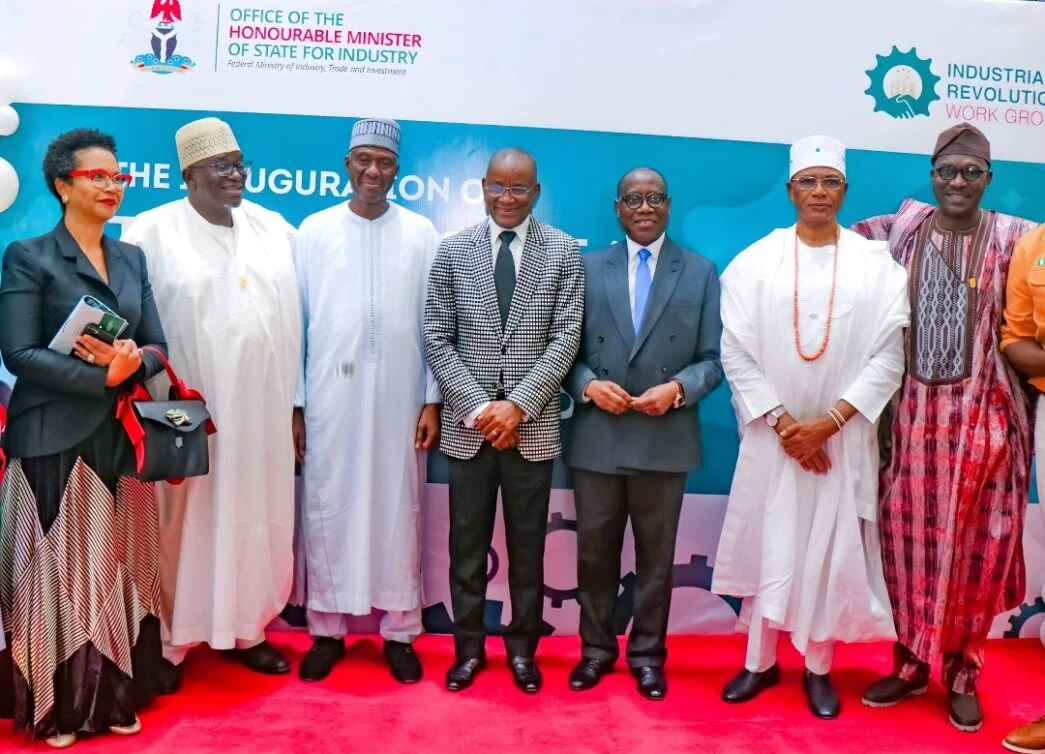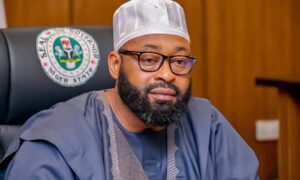The Nigerian federal government, on Thursday, inaugurated a 22-member industrial revolution work group (IRWG) to boost Nigeria’s manufacturing sector.
Inaugurated in Abuja, the IRWG is led by Owan Enoh, minister of state for industry and co-chaired by Francis Meshioye, president of the Manufacturers Association of Nigeria (MAN).
Other members of the group include the permanent secretary of the ministry of trade and industry, representatives from ministry of power, ministry of finance, MAN, the Nigeria Customs Service (NCS), the Nigeria Ports Authority (NPA), the Nigerian Association of Chambers of Commerce, Industry, Mines, and Agriculture (NACIMMA), and others.
Enoh, speaking at the event, said the formation of the group was necessitated by the challenges faced in the trade and industry sector.
The minister said the revolution group is mandated to rejuvenate, innovate, and elevate Nigeria’s industrial future.
“We are blessed with vast natural resources, an industrious and youthful population, and an entrepreneurial spirit that is second to none. What we require now is a deliberate, structured, and results-oriented industrial roadmap,” he said.
Enoh, addressing concerns regarding the exit of businesses from Nigeria due to regulatory and infrastructure challenges, reassured stakeholders that many industries still view the country as a key market.
He said the IRWG would focus on addressing regulatory bottlenecks, power supply issues, and customs procedures.
The IRWG, the minister said, will anchor its efforts on four pillars which include, revitalising dormant industries, infrastructure and energy solutions, technology innovation, access to finance and competitiveness.
“We will conduct a meticulous audit of industries that once thrived but have since stagnated, formulating bespoke intervention strategies for their resurgence,” he said.
“Our industries must not only cater to local demands but must also be positioned to compete on the international stage, leveraging the African Continental Free Trade Area (AfCFTA) and broader global trade alliances.
“No industrial revolution can succeed without reliable infrastructure, robust logistics networks, and a stable power supply. We will collaborate with key stakeholders to systematically dismantle these bottlenecks.
“The fourth industrial revolution is upon us. Nigeria must embrace digital transformation, automation, and a research-driven industrial ecosystem to secure its rightful place in the global economy.”
On his part, Olusegun Aganga, former minister of industry trade and investment, said the IRWG, comprising stakeholders from the public and private sectors, would drive a targeted and structured process to tackle the pressing challenges facing Nige- ria’s manufacturing sector.















